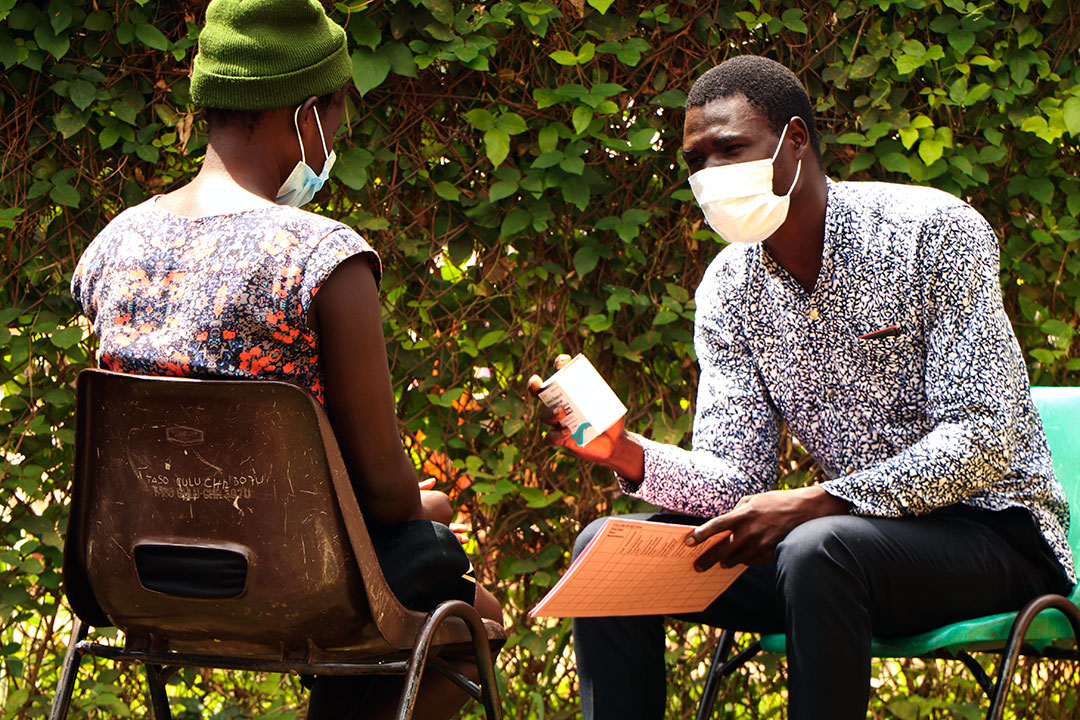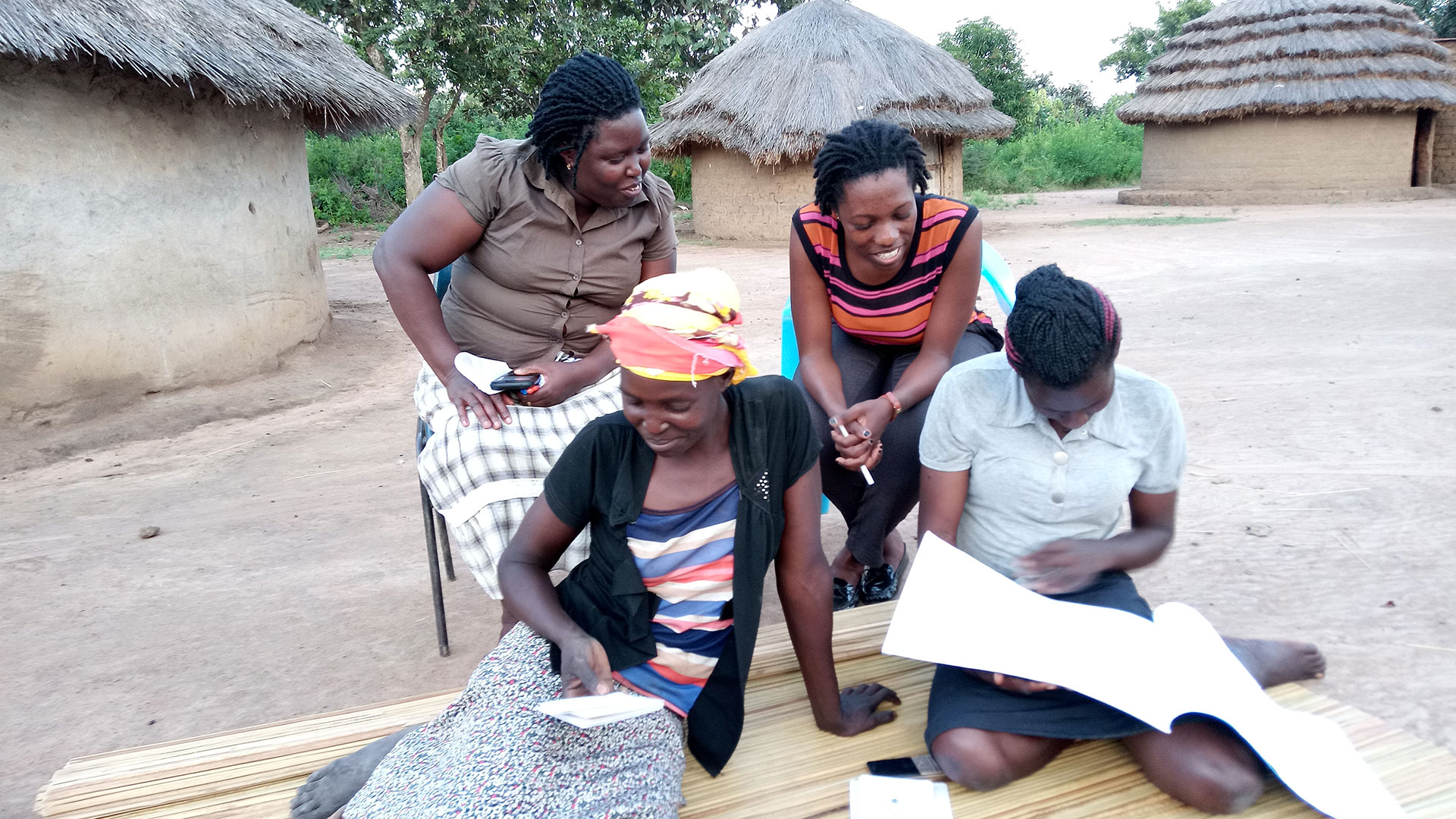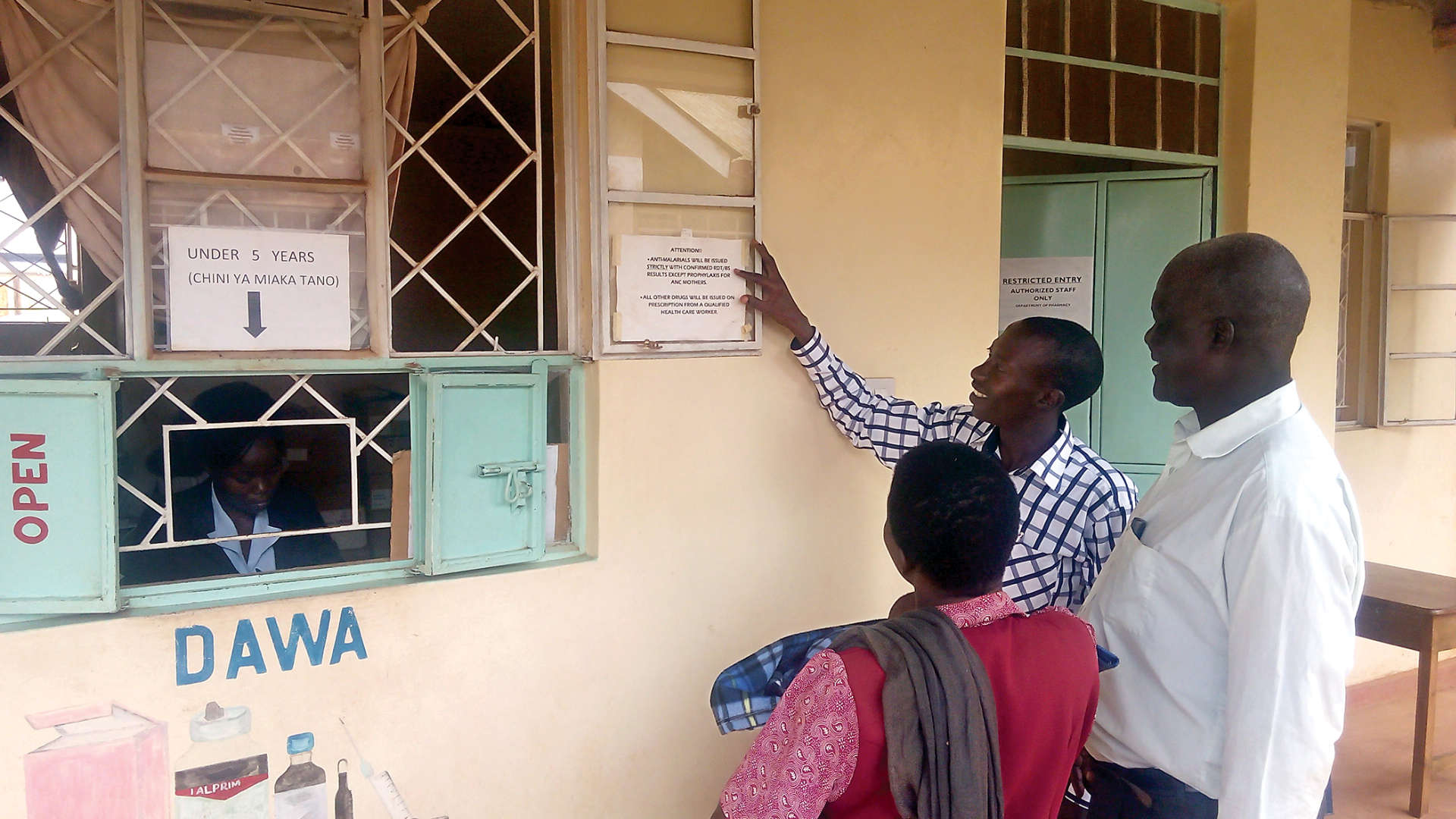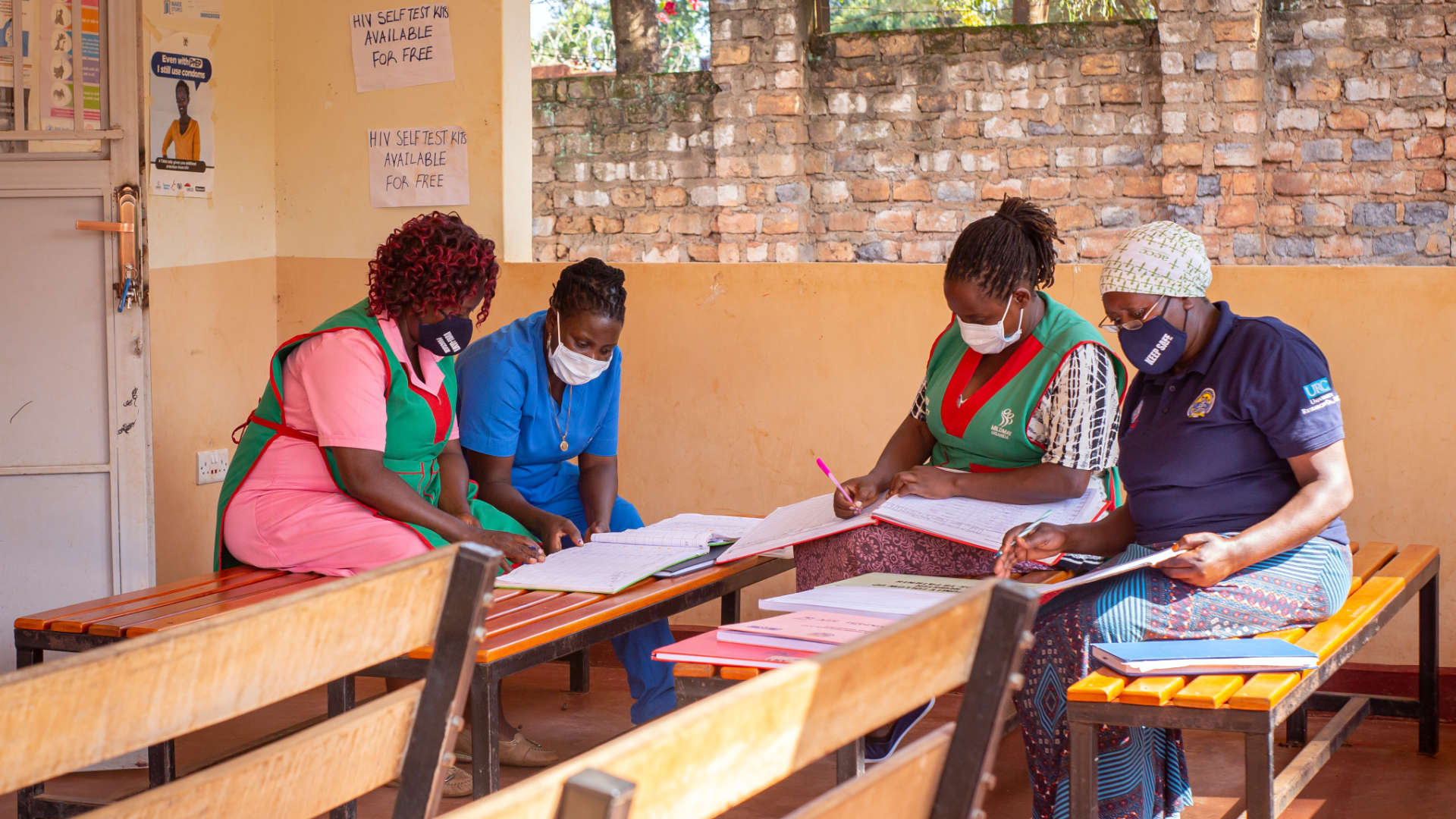When the first case of COVID-19 was reported in Uganda in March 2020, the Government of Uganda instituted guidelines restricting the movement of public and private vehicles. This made it difficult for clients to reach health facilities throughout Gulu District in Northern Uganda to receive HIV prevention and treatment services.
URC’s USAID Regional Health Integration to Enhance Services, North Acholi (RHITES-N. Acholi) Activity – which is focused on strengthening health services and encouraging people to use them – had to quickly adapt its strategies to reach key populations (KPs) and priority populations with HIV prevention, care, and treatment services. KPs include female sex workers, men who have sex with men, transgender individuals, people who inject drugs, and people in prisons and other closed settings. Priority populations comprise HIV-negative partners in serodiscordant relationships, adolescent girls and young women under 25, long distance truck drivers, uniformed personnel, migrant workers, fishing communities, orphans and vulnerable children, and non-injecting drug users.
Adapting to Service Provision under COVID Restrictions
Gulu District, with technical and financial support from RHITES-N. Acholi, responded quickly by implementing new approaches to maintain and enhance pre-exposure prophylaxis (PrEP) treatment for KPs during COVID-19. PrEP is a preventive treatment for those who don’t have HIV which entails taking a pill every day to reduce the risk of contracting the virus. New strategies include:
- Increased use of virtual communication methods;
- Widened peer outreach;
- Leveraging targeted food relief distributions initiated by the government; and
- Ensured timely quantification, requisition, and distribution of PrEP commodities.
“We had to strengthen the use of virtual communication, particularly the use of phone calls, SMS, and WhatsApp group messages for different KP groups. These communications were handled by peer outreach workers,” said Dr. Boniface Bongonyinge, Gulu District Technical Coordinator for RHITES-N. Acholi.
After contacting a KP client, the peer outreach worker refers the client directly to a facility for service provision or to meet with a health worker at a specific location to receive services. All service providers adhere to COVID-19 social distancing guidelines. Clinics have been reorganized to ensure social distancing, and appointments are spread out by offering multi-month refills to allow a manageable number of clients to be seen daily.
In collaboration with the COVID-19 District Taskforce team, RHITES-N, Acholi is providing information on PrEP, condom use, and antiretroviral therapy (ART) adherence to KPs. By leveraging targeted food relief distributions initiated by the government and supported by the taskforce and community-based organizations, RHITES-N, Acholi has provided 400 sex workers with male and female condoms, PrEP, and ART for those living with HIV.
One KP leader said: “As a KP leader, I know limiting transport for us was a challenge, especially to those who are HIV-positive and are on ART. I was receiving calls from KPs who had returned to villages since there was no work in town. After the lockdown, people were starving. There was no work. Many had not saved. They were on ART but had nothing to eat.” Dr. Bongonyinge managed to get food supplies, including posho (porridge made from maize) and beans to the KPs.
Before COVID-19, KPs had safe spaces at certain health facilities where they received services. With the transport challenge, clients were hesitant to receive services from the nearest health center in their community, fearing stigma. Health workers and peer leaders have adapted by meeting KP clients at mutually agreed-upon locations in their communities. The activity team facilitates transport for the teams to visit clients in the community to make door-to-door delivery of PrEP for clients of consenting age already on treatment and unable to visit the facility or drop-in center.
During the pandemic, RHITES-N, Acholi has worked with facilities to quantify their PrEP stock and receive supplies from other sites to ensure that multi-month drug refills are available for all clients. Health workers routinely update client records to allow for timely follow-up for drug refills and check-ins.
Turning a Pandemic into an Opportunity
By quickly adapting to the rapidly changing circumstances, KP engagement and demand for PrEP in the region has increased. At the end of May, the Acholi Region had newly initiated a total of 407 KPs and cumulatively, 1,502 KPs on PrEP with 916 maintained on PrEP. This exceeds the RHITES-N. Acholi annual target of 634.
Despite COVID-19, RHITES-N. Acholi plans to reach and exceed the annual target of 2,098 KPs receiving high-impact HIV prevention, care, and treatment services. The activity will deploy additional peer leaders to cover at least 90% of hotspots from the 40% currently covered and KP services will be expanded to Amuru, Kitgum, and Agago Districts.



